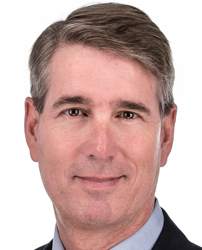Don't Put "Descartes Before The Horse" When Outsourcing

By Louis Garguilo, Chief Editor, Outsourced Pharma

Robert Ward is on his second tour of duty as chief executive officer of an early-stage biotech. His first, at Radius Health, Inc., concluded with the successful launch of commercial drug TYMLOS (abaloparatide-SC).
Today he’s planning for more commercial success, at Eloxx Pharmaceuticals, Inc., a clinical-stage biopharma discovering and developing novel therapeutics to treat cystic fibrosis, cystinosis, inherited retinal disorders and other rare diseases caused by nonsense mutations.
This makes Ward the perfect “real-life” CEO to react to an editorial I wrote recently, about a “speculative” modern-day biotech CEO, during her first companywide meeting. Regarding next steps and strategy for her young company, she tells her colleagues:
“We outsource, therefore we exist.”
Ward’s initial reaction to that editorial echoes its philosophic bent:
“Don’t put Descartes before the horse,” he says.
The Gallop Starts At Home

So what might Ward say to his employees if he were set in a scene similar to that faced by the CEO in my first editorial?
“When we look at the world in which we operate today, there is expertise we must maintain within the company to build a sustainable competitive advantage,” he begins.
“Then as we think about further developing our pipeline and lead compounds, we must look for expertise outside the company – but only to the groups offering the best complementarity of what we do in-house, and to the expertise we have. We always want to complement our internal capabilities with a network of external resources.”
He let’s that sink in for a moment, and then continues:
“We want to build a base. Our initial focus is ensuring we have our own operating principles that allow us to deliver on the ‘must haves’ we need as a company. Then to accelerate our progress, our employees can add their creative insights, and take on some of our stretch objectives. As we become able to deliver on those stretch objectives, that’s when the company really breaks out, starts to grow rapidly in value, and gains additional capabilities.”
“Therefore, focus foremost on building that internal base. Creating an experienced team that works effectively together. These are individuals who understand what’s around the next corner, so when we ask the question of what is the expertise we want in-house, and what is the expertise we can access through a network, we can make good decisions on how to build that complementarity.”
The Philosopher’s Mirror
Ward moves his strategic soliloquy to the optimal handling of the inside-outside relationship he’s describing.
“A great network of partners fulfills its promise when the internal team commits the time to the partnership needed for effective communication, and when the internal team has enough expertise to align with the partner on the milestones that drive progress.
“There are no problem-free projects. When we run into a challenge, we want to ensure our internal team has an opinion on options and solutions. When our external network also provides ideas, we can have a healthy dialogue on the best way to get the problem solved as rapidly as possible.
“We want to – in lockstep – elevate the level of the internal team and build a network that allows us to punch above our weight, to operate as a global company with a small footprint. In biopharmaceuticals these days, we want to operate from the start like a global company, in terms of internal expertise and accessing best practices.”
At this point I interrupt Ward to ask if this means the much-celebrated “virtual model” of biopharma start-ups is in fact an errant model.
“I’m saying it’s fine to outsource quite a bit,” he replies, “as long as you mirror the outside capabilities internally.”
“For example,” he continues, “we have internal expertise in manufacturing and supply chain. So when we work with an external party, combined it’s a very sophisticated relationship with a tremendous amount of global experience. We can work effectively with them, because we partner them up with individuals in the company that have the right level of expertise to maximize what both sides bring to the table.”
Bigger Reflections
Noting that even with Ward’s philosophy of complimenting and mirroring internal and external knowhow, Eloxx is of course much smaller and less resourced compared to the CDMO it has chosen as it’s most important external relationship. (He has identified the CDMO to me, and it is global … and growing.)
But Ward doesn’t waver, or change nomenclature.
“If we’re working with a large or global organization, but our internal staff is not at a level of experience that allows us to make the most of the partnership, then yes, the global party may find we’re not a great partner for them, and we may get less out of the partnership.
“So again, outsourcing is effective provided we have and continue to build the internal expertise that complements, and in effect mirrors, the scope of the party we work with.”
He continues: “With biotechs, the two most important keys to success are a robust CMC approach to manufacturing and supply, and a well-thought through dose-finding study to support clinical development.
“Companies that short-circuit on CMC, or take shortcuts in dose findings, find out later they have delays. We believe working with our large CDMO now will save time in the long run. We can learn from their expertise on avoiding ‘rookie mistakes.’
“An advantage of working with a well-established partner is we’re confident they have a clear understanding of the global regulatory environment. We would expect our portfolio of molecules to have applications around the world. If our challenge is solving a supply chain issue in Japan or Europe, we have a partner that understands those regulatory environments.”
If all goes well for Eloxx, there will be more complementarity and mirroring to come. It’s a real CEO’s philosophy of outsourcing.
